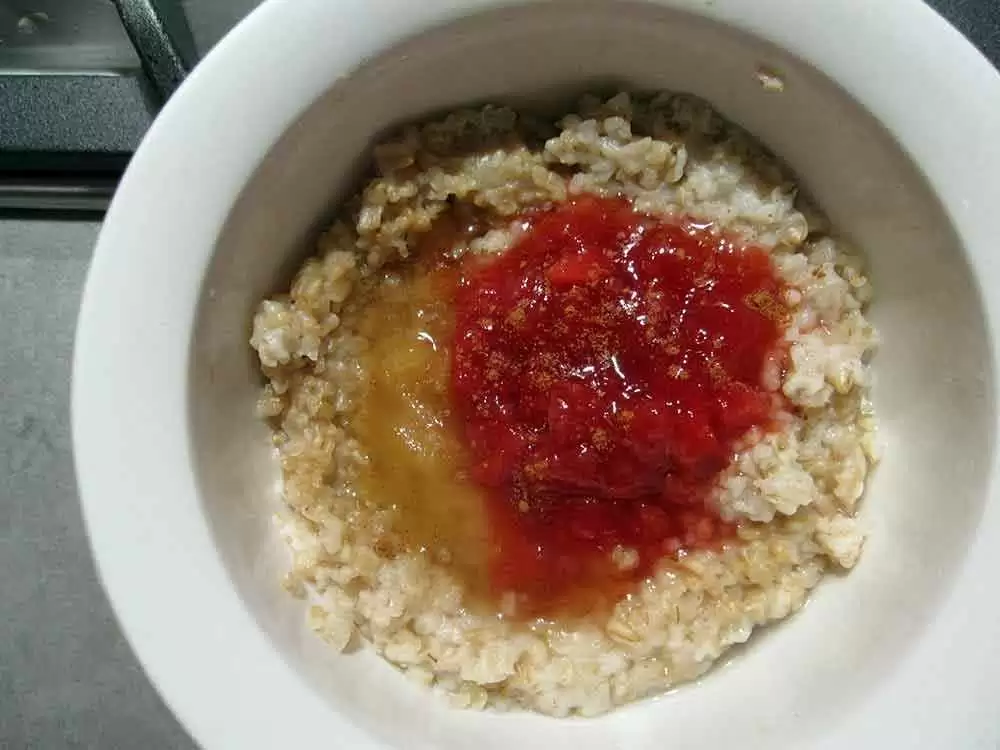
Celiac.com 09/12/2019 (Originally published 04/05/2010) - All of us with celiac disease or gluten sensitivity share something in common: we started eating gluten free to improve and protect our health. But many of us focus on gluten free and few or no other aspects of good nutrition and end up making mistakes with our diet that lead to unhealthy weight gain or other new health problems.
Some people can adopt the type of gluten-free diet that is commonly eaten and feel well. But for most people the gluten-free diet is a great starting point but not an end-all. It’s an eating plan that we can gradually adapt in individual ways to form the best diet for each of us. If you want to eat gluten free for what it was meant for – promoting long-term good health – give your diet an upgrade by following these dietary guidelines from my new book Gluten Free Throughout the Year:
Celiac.com Sponsor (A12):
Go gluten free naturally. It’s tempting to buy a lot of food products that are labeled gluten free, but the main foods that you should purchase are those that are naturally gluten free, such as vegetables, fruits, poultry, fish, and meat. Stocking up on whole foods and creating meals with them is the best way to avoid even trace amounts of gluten and to eat a diet rich in nutrients that support health.
Be choosy about the food products you buy. When selecting foods, look for those that are labeled gluten free and that don’t contain hidden sources of gluten. But also look for those that aren’t made with refined white rice flour (often labeled as rice flour as opposed to brown rice flour) and starches, such as potato starch or tapioca starch. Regular eating of nutrient-poor refined ingredients sets us up for nutrient deficiencies, unhealthy weight gain, and chronic diseases such as heart disease and type 2 diabetes.
Become more unrefined. Don’t just avoid refined flour. Do your best to steer clear of foods with other refined ingredients known to promote degenerative disease – namely, refined sugars and refined fats. Refined sugars include sugar (typically listed as “evaporated cane juice” on food labels), high-fructose corn syrup, and fructose. Refined fats include vegetable oils, such as corn oil, soybean oil, cottonseed oil, safflower oil, sunflower oil, and partially hydrogenated oil.
Personalize the diet for you. It’s common for gluten-sensitive people to be allergic or sensitive to other foods, such as cow’s milk, soy, eggs, or yeast, and to develop uncomfortable symptoms, including gastrointestinal distress, nasal or sinus congestion, joint aches, or other ailments, from eating them. The only way to clear up the health problem is to avoid the offending food. Customize the diet for your best health by identifying and avoiding the particular foods that are problematic for you.
Eat more against the grain than you’re used to. The Western diet we have grown up on and are accustomed to is high in high-carbohydrate, wheat-based grains, which sets us up for weight gain and insulin-related health conditions such as type 2 diabetes. When we go gluten free, we tend to think we just have to switch the wheat-based bread, pasta, baked goods, and snack foods we were eating with gluten-free versions of those foods. Gluten-free grains are free of gluten but they are still high in carbohydrates and relatively low in nutrients compared to the carbohydrates and calories they provide. Most vegetables, on the other hand, have considerably fewer carbohydrates and are much higher in vitamins and minerals. It goes against the type of diet most of us are used to, but for many nutritional reasons, it’s important to fight the tendency to trade a standard high-grain diet for a gluten-free, high-grain diet. Instead, eat more vegetables. That is the overlooked secret to long-term weight control and optimal health that many people, including most who go gluten-free, miss.
* This article was excerpted and adapted from Gluten Free Throughout the Year: A Two-Year Month-to-Month Guide for Healthy Eating (Against the Grain Nutrition, 2010) by Melissa Diane Smith.









Recommended Comments
There are no comments to display.
Create an account or sign in to comment
You need to be a member in order to leave a comment
Create an account
Sign up for a new account in our community. It's easy!
Register a new accountSign in
Already have an account? Sign in here.
Sign In Now